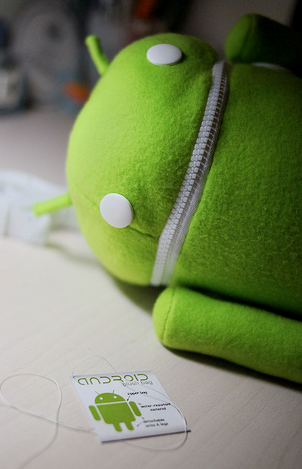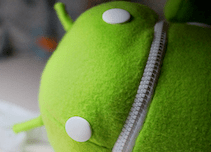 Currently, Google has one of the more interesting problems I’ve ever seen. While I’d never tell anyone to slow down their pace of innovation, with Android, I can’t help but wonder if Google might have to do just that — because it’s seriously starting to trip over itself.
Currently, Google has one of the more interesting problems I’ve ever seen. While I’d never tell anyone to slow down their pace of innovation, with Android, I can’t help but wonder if Google might have to do just that — because it’s seriously starting to trip over itself.
This week’s Mobile World Congress is highlighting this exact problem. Yesterday, we saw not one, but two new sexy Android phones announced just by HTC alone. HTC, you may recall, is the manufacturer of the Nexus One, the Android phone that Google felt so comfortable with, it decided to sell itself. Now, just over a month later, at least one of these new phones, the Desire, is simply a better version of the Nexus One. Consumers must be getting whiplash at this point.
Leading up to the Nexus One launch, I wondered if Google was just eating its own dogfood (as it said) or its own children. After all, the Nexus One was launching just weeks after the Droid, Verizon’s Android phone that was being marketed as the best Android out there. (And yes, an “iPhone killer“.) Plenty of Droid owners were pissed off that they had just laid down their money (and locked themselves into a carrier contract) for a phone that was being upstaged just a few weeks later by Google itself. But now the problem is already getting much worse.
It’s not just Google that is upstaging other barely-released Android phones now, it’s the other Open Handset partners, like HTC, doing it on their own. And while it’s great for consumers to have choices, the problem is that consumers must also now deal with the fear that anything they buy will be upstaged by something better in just a few weeks. Why would I buy a Nexus One if I can get the HTC Desire? And why would I buy an HTC Desire when it will just get upstaged by another new Android device shortly after? And so on…
It some ways, it’s similar to a problem Apple has long had. With iPods in particular, for a while there, Apple was pushing out new ones so quickly that those who bought the last one would groan about the pace of updates. But again, it’s much worse with these phones because (at least in the U.S.) consumers are buying them tied to multi-year contracts that are expensive to get out of. So even if you didn’t mind shelling out another few hundred dollars for the new hardware, you’d also have to pay another few hundred dollar fee for the right to do so.
And there’s another card Apple is better at playing: silence. While the HTC Desire doesn’t yet have a U.S. release date (it will be in Asia in April, and other countries probably soon after that), by pre-announcing it, it already makes it seem like people would be crazy to buy a Nexus One right now. Apple is good at keeping silent until they actually release a product (the iPad is an exception here, but it’s a completely new entry), so they can squeeze a few final sales out of the old products that will soon be obsolete. Sure, if you follow Apple closely, you can usually read the tealeaves and know not to buy a new piece of Apple hardware around a certain time. But most people don’t care enough to read that deeply into rumors, so they happily buy right away. But it’s different when companies are out there touting their own bright new shiny objects that make the old objects in their class much less shiny.
Sure, this isn’t all Google’s fault since it open-sourced Android and created the OHA to let other partners do whatever they want. And again, yes, it’s great to have options. And sure, some of the Android phones compliment each other quite nicely — as in, some have physical keyboards, and some don’t. But plenty of them are simply better versions of recently released Android phones. And while sales of Android phones are gaining momentum (60,000 handsets a day now), I can’t help but wonder if we already have a “too many cooks in the kitchen” problem with Android. One that is only going to get worse with time.
At least with the iPhone, we know that only Apple is going to upstage older versions — and that it will do so once a year.
Here’s all I know about Android: if I were in the market for one of these phones right now, I would need a Xanax.
[photo: flickr/laihiu]
